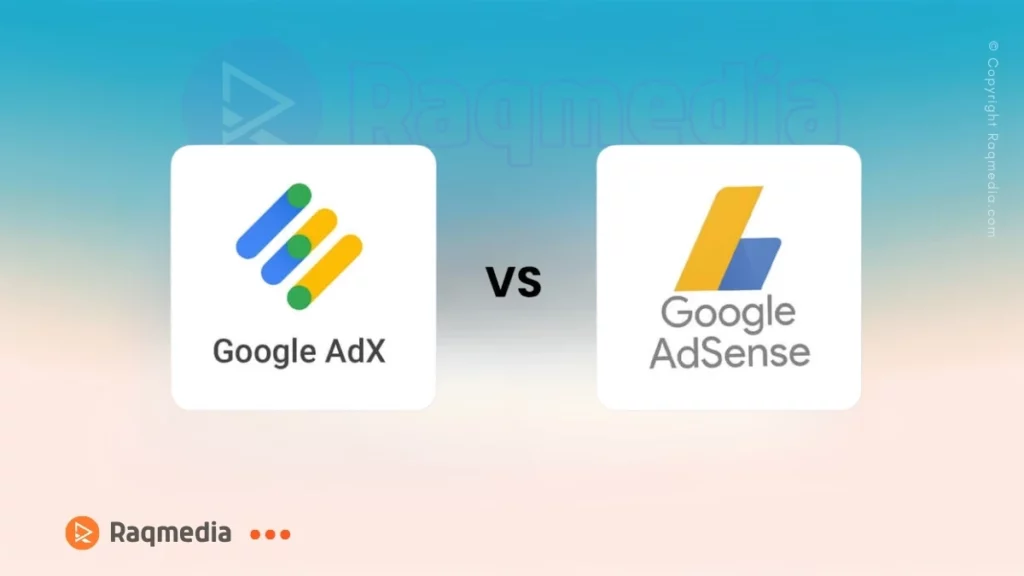If you're looking to monetize your website or blog, the choice between Google Adsense and Adx can be a tough one. Google Adsense is user-friendly and accessible to almost everyone, making it a popular choice for beginners. On the other hand, Adx offers advanced features and higher revenue potential but requires approval from Google.
One key difference is that Adx provides access to premium advertisers and offers more control over ad placements compared to Adsense. However, the higher earnings potential of Adx comes with its own set of challenges, such as meeting traffic requirements and maintaining quality content. Ultimately, the decision between Google Adsense and Adx depends on your goals, experience level, and willingness to invest time in optimizing ad performance.
Table of Contents
- 1 Google Adsense vs Adx: Which is Better?
- 2 Understanding Google Adsense
- 3 Understanding Google Adx
- 4 Key Differences Between Google Adsense and Adx
- 5 Performance Metrics
- 6 Google Adsense vs Adx: Which is Better For You?
- 7 Getting Started with Google Adsense
- 8 Getting Started with Google Adx
- 9 Common Challenges and Solutions
- 10 Case Studies: Adsense vs Adx
- 11 Comparison Table: Google AdSense vs Google AdX
- 12 FAQs
- 12.1 What is the main difference between Google Adsense and Adx?
- 12.2 Can I use both Adsense and Adx on my website?
- 12.3 Which platform offers higher revenue potential?
- 12.4 Is Google Adsense suitable for beginners?
- 12.5 What are the eligibility requirements for Google Adx?
- 12.6 How can I maximize my earnings with Google Adsense?
- 13 Wrapping Up
Google Adsense vs Adx: Which is Better?

Monetizing websites through advertisements has become a primary revenue source for many content creators and businesses. Google offers two prominent solutions for ad monetization: Google Adsense and Adx (Google Ad Exchange). Understanding the differences between these two platforms is crucial for optimizing your ad revenue. This comprehensive guide will compare Google Adsense and Adx in detail, helping you decide which is better suited for your needs.
Understanding Google Adsense
Google Adsense is a free program run by Google that allows publishers to display ads on their websites. These ads are managed, sorted, and maintained by Google, earning publishers money based on clicks or impressions.
How Google Adsense Works
Google Adsense uses a cost-per-click (CPC) and cost-per-thousand-impressions (CPM) model. Advertisers bid on keywords, and Google places relevant ads on publishers' sites. When visitors interact with these ads, publishers earn revenue.
Benefits of Using Google Adsense
- Ease of Use: Adsense is user-friendly, making it accessible for beginners.
- Automatic Ad Placement: Google’s algorithms automatically place ads in optimal locations.
- Variety of Ad Formats: Adsense supports text, display, rich media, and video ads.
- Reliable Payments: Monthly payments with a low payout threshold.
Drawbacks of Google Adsense
- Revenue Limitations: Earnings can be limited due to the CPC model.
- Strict Policies: Google’s strict policies can lead to account suspensions.
- Limited Control: Publishers have limited control over the ads displayed.
Understanding Google Adx
Google Adx (Google Ad Exchange) is an advanced programmatic advertising platform designed for larger publishers and businesses. It offers more control, flexibility, and potentially higher revenue compared to Adsense.
How Google Adx Works
Adx operates on a real-time bidding (RTB) system, where advertisers compete in real-time auctions to place ads on publishers' websites. This dynamic bidding process can lead to higher revenue for publishers.
Benefits of Using Google Adx
- Higher Revenue Potential: RTB can result in higher earnings compared to Adsense.
- Greater Control: Publishers have more control over which ads are displayed.
- Advanced Targeting Options: Enhanced targeting capabilities lead to more relevant ads.
- Premium Advertisers: Access to a broader range of high-quality advertisers.
Drawbacks of Google Adx
- Complex Setup: Adx requires more technical knowledge and resources to manage.
- Eligibility Requirements: Only available to large publishers with significant traffic.
- Higher Costs: Adx can have higher operational costs compared to Adsense.
Key Differences Between Google Adsense and Adx
Eligibility and Accessibility
- Google Adsense: Accessible to any publisher with a website that meets Google’s guidelines.
- Google Adx: Requires significant traffic and typically accessed through a Google Certified Publishing Partner.
Revenue Potential
- Google Adsense: Limited by CPC and CPM models.
- Google Adx: Potentially higher revenue due to RTB and premium advertisers.
Control and Flexibility
- Google Adsense: Limited control over ad placement and types.
- Google Adx: Greater control over ad placement, formats, and targeting.
Ad Quality and Advertisers
- Google Adsense: Wide range of advertisers, but quality may vary.
- Google Adx: Access to premium advertisers and higher quality ads.
Ease of Use
- Google Adsense: Easy to set up and use, suitable for beginners.
- Google Adx: Requires technical expertise and resources, suitable for larger publishers.
Performance Metrics
Google Adsense Metrics
- CPC and CPM: Primary metrics for revenue.
- Click-Through Rate (CTR): Measures the effectiveness of ad placements.
- Ad Viewability: Percentage of ads that are actually seen by visitors.
Google Adx Metrics
- eCPM (Effective CPM): Measures the overall revenue per thousand impressions.
- Fill Rate: Percentage of ad requests that are filled by advertisers.
- Bid Density: Number of bids per ad impression, indicating competition and potential revenue.
Google Adsense vs Adx: Which is Better For You?
Small to Medium-Sized Publishers
If you are a small to medium-sized publisher with moderate traffic, Google Adsense might be the better choice due to its ease of use and accessibility. Adsense allows you to start monetizing your site quickly without needing extensive technical knowledge.
Large Publishers and Businesses
For larger publishers with significant traffic and resources, Google Adx offers greater revenue potential and more control over the advertising process. The ability to access premium advertisers and utilize advanced targeting can result in higher earnings.
Getting Started with Google Adsense
Sign-Up Process
- Create a Google Account: If you don’t have one, create a Google account.
- Sign Up for Adsense: Visit the Adsense website and sign up using your Google account.
- Website Verification: Add a piece of code to your website to verify ownership.
- Ad Placement: Customize ad placements using the Adsense dashboard.
Optimizing Adsense Revenue
- Ad Placement: Experiment with different ad placements to find what works best.
- Content Quality: High-quality content attracts more visitors and increases ad interactions.
- Responsive Ads: Use responsive ads to ensure they display correctly on all devices.
Getting Started with Google Adx
Eligibility Requirements
To qualify for Google Adx, your website needs significant traffic and must comply with Google’s policies. Typically, publishers access Adx through a Google Certified Publishing Partner.
Setup Process
- Partner with a Certified Publisher: Work with a partner to gain access to Adx.
- Ad Server Integration: Integrate Adx with an ad server like Google Ad Manager.
- Configure Ad Units: Set up ad units and configure targeting options.
Optimizing Adx Revenue
- Bid Optimization: Utilize bid optimization tools to maximize revenue.
- Ad Quality: Monitor and manage ad quality to maintain a positive user experience.
- Data Analysis: Regularly analyze performance data to make informed decisions.
Common Challenges and Solutions
Ad Blocking
- Challenge: Ad blocking software can reduce ad impressions and revenue.
- Solution: Implement ad recovery solutions and focus on non-intrusive ad formats.
Policy Compliance
- Challenge: Violating Google’s policies can lead to account suspension.
- Solution: Stay updated with Google’s policies and ensure compliance.
Revenue Fluctuations
- Challenge: Revenue can fluctuate due to market conditions and seasonality.
- Solution: Diversify income streams and optimize ad placements regularly.
Case Studies: Adsense vs Adx
Small Publisher Success with Adsense
A small blog about cooking recipes used Google Adsense to monetize their content. Despite limited traffic, the blog generated consistent revenue due to high-quality content and strategic ad placements.
Large Publisher Success with Adx
A major news website partnered with a Google Certified Publishing Partner to access Adx. The switch from Adsense to Adx resulted in a 50% increase in revenue due to premium advertisers and advanced targeting options.
Comparison Table: Google AdSense vs Google AdX
| Feature | Google AdSense | Google AdX (Ad Exchange) |
|---|---|---|
| Target Audience | Individual publishers, bloggers, small websites | Premium publishers, large websites, media companies |
| Approval Process | Easy, with basic website quality requirements | Stringent, requires invitation or eligibility check |
| Revenue Model | Cost-per-click (CPC), Cost-per-thousand impressions (CPM) | Real-time bidding (RTB), preferred deals, private auctions |
| Ad Inventory | Limited, standard Google ads | Access to a vast network of advertisers and premium demand partners |
| Ad Formats | Text, display, video, and responsive ads | More diverse including programmatic ads, native, video, and custom formats |
| Revenue Potential | Moderate, suitable for small to medium traffic | Higher potential, suited for high traffic and premium content |
| Control over Ads | Basic controls, can block specific ads or categories | Advanced controls, can set floor prices, preferred deals, and private auctions |
| Reporting & Analytics | Basic reporting with essential metrics | Detailed reporting with in-depth analytics and real-time data |
| Payment Threshold | $100 | Customizable, typically higher than AdSense |
| Ad Quality Control | Google ensures quality but limited customization | Higher control over ad quality and content type |
| Access to Demand | Limited to Google ads network | Access to multiple demand sources including Google, third-party exchanges, and direct deals |
| Support | Basic, community forums, limited direct support | Dedicated account management and advanced support options |
| Integration | Easy to implement with simple ad code | Requires more complex setup and integration, often via ad servers or third-party platforms |
FAQs
What is the main difference between Google Adsense and Adx?
The main difference is that Adsense is suitable for small to medium-sized publishers with its simplicity and ease of use, while Adx is designed for larger publishers offering greater control and higher revenue potential through real-time bidding.
Can I use both Adsense and Adx on my website?
Yes, you can use both platforms on your website. However, it’s essential to manage them properly to avoid policy violations and optimize performance.
Which platform offers higher revenue potential?
Google Adx generally offers higher revenue potential due to its real-time bidding system and access to premium advertisers.
Is Google Adsense suitable for beginners?
Yes, Google Adsense is very user-friendly and suitable for beginners due to its straightforward setup and management process.
What are the eligibility requirements for Google Adx?
Google Adx requires significant website traffic and is typically accessed through a Google Certified Publishing Partner. It’s designed for larger publishers and businesses.
How can I maximize my earnings with Google Adsense?
To maximize your earnings with Google Adsense, focus on high-quality content, strategic ad placements, and responsive ad formats. Regularly analyze performance data and make necessary adjustments.
Wrapping Up
Choosing between Google Adsense and Adx depends largely on the size and needs of your website. For smaller publishers, Adsense provides a simple and effective way to start earning revenue. Larger publishers, on the other hand, can benefit significantly from the advanced features and higher revenue potential of Adx. By understanding the strengths and limitations of each platform, you can make an informed decision that best suits your monetization goals.









